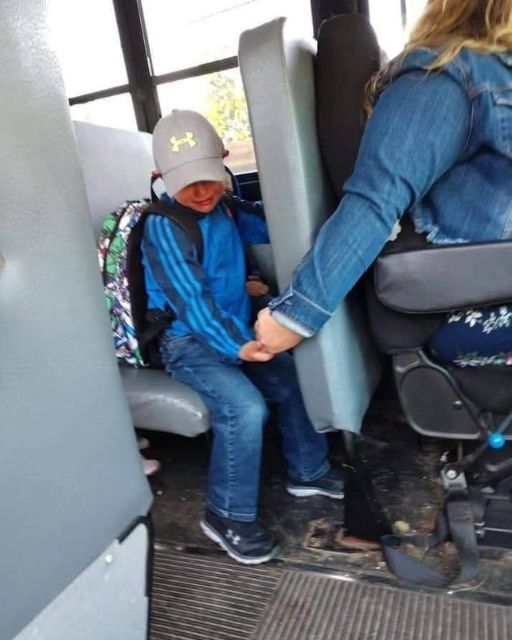He used to be my sunshine.
Every morning, Calvin would burst through the front door like he’d just been let out of a cannon—shouting goodbye to the dog, waving his plastic dino at me before bounding down the driveway to the bus stop. He was six but already had the kind of energy that made you forget your coffee. And that grin… it could light up the entire neighborhood. But something changed.
It started slowly. A missed smile here. A mumbled “good morning” there. Then came the mornings where he didn’t want to put on his shoes. The days he said his tummy hurt but couldn’t explain why. The nights he couldn’t sleep and wanted to leave the hallway light on. And then, the worst thing—he stopped drawing.
My boy loved to draw. He once sketched an entire zoo on the walls of the guest room with washable markers. But now, his papers were empty. Or worse—scribbled over with black and gray swirls. Torn. Crumpled. I didn’t want to overreact. Maybe it was just a phase. Maybe he was tired. But my gut told me otherwise.
That morning, I decided to walk him all the way to the bus. Normally I’d just watch from the porch, waving like always. But that day, I stayed close, watching him clutch the straps of his little backpack like it might fly away. He didn’t wave at the driver. He didn’t look at the other kids. When the bus doors opened with that familiar hydraulic hiss, he paused, like the steps were made of lava.
“Go on, sweetheart,” I whispered. “You’re okay.”
He looked up at me—eyes cloudy, lips pressed together—and nodded once before climbing aboard.Then I saw it.
He tried to sit in the front, but a kid a few seats back said something I couldn’t hear. I saw the smirk. I saw another kid nudge his friend and point. Calvin’s hand went to the brim of his cap, pulling it low. He turned toward the window, and just before he tucked his knees up, I saw his sleeve swipe across his cheek.
Tears.
Then something I didn’t expect happened.
The bus didn’t move. Miss Carmen, the driver we’d had since kindergarten, reached her arm back—one hand still on the wheel, the other stretched behind her like a safety net. She didn’t say anything. She just reached.
Calvin looked at it for a second… then grabbed it like he was drowning.
And she held on. A long moment passed—engine humming, other kids quiet now—and she just stayed like that, her hand in his. Not rushing. Not scolding. Just holding.
The bus finally rolled away. And I stood there, heart twisting in a dozen directions. That afternoon, she didn’t just drop Calvin off.
She parked the bus, turned off the engine, and stepped down with a kind of purpose I hadn’t seen before. She didn’t smile or wave. She didn’t reach for her clipboard. Instead, she marched straight up to the group of parents waiting by the corner—me included—and looked us dead in the eye.
Her voice wasn’t loud. But it didn’t need to be.
“Some of your kids are hurting people,” she said.
